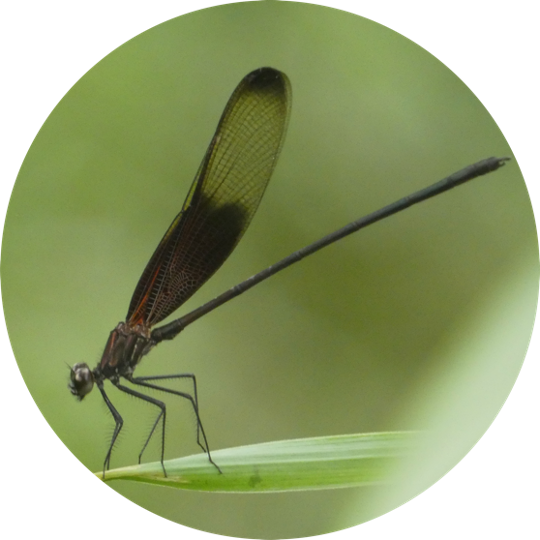Opportunities
Now recruiting PhD students and Postdocs!
I am advertising several competitive Ph.D. studentships*. Successful applicants would begin in October 2025. Take a look at the project descriptions below and get in touch if you are interested. Please make informal inquiries prior to 9 December, if possible. *interested applicants will work with me to develop and submit an application, the outcome of which will be known sometime in Spring 2025.
For information about joining as a post-doc, click here.
Durham is a charming market town, with a downtown area that doubles as a UNESCO World Heritage Site. The city of Newcastle is a short train ride away. For more information about living in and around Durham, click here.
I am a committed advocate for students and postdocs coming from backgrounds that have historically been marginalised in academic spaces.
Studentship Opportunities:
(1) The evolution of reproductive isolation in rubyspot damselflies
 For speciation to occur, reproductive isolation must evolve between diverging lineages. Consequently, the evolutionary dynamics of traits involved in reproductive isolation are the focus of much research in the field of speciation. In this project, the student will study rubyspot damselflies in the field and lab to test hypotheses about the behavioural and genomic mechanisms leading to reproductive isolation in this lineage, including:
(1) How have mate recognition behaviours coevolved with sexual signals?
(2) How does competition between species influence the dynamics of reproductive isolation?
For speciation to occur, reproductive isolation must evolve between diverging lineages. Consequently, the evolutionary dynamics of traits involved in reproductive isolation are the focus of much research in the field of speciation. In this project, the student will study rubyspot damselflies in the field and lab to test hypotheses about the behavioural and genomic mechanisms leading to reproductive isolation in this lineage, including:
(1) How have mate recognition behaviours coevolved with sexual signals?
(2) How does competition between species influence the dynamics of reproductive isolation?
The student would gain a number of highly transferable skills, such as fieldwork experience, wet lab protocols for preparation of genomic libraries, computational techniques for analysis of genomic data, and data management.
(For submission to NERC IAPETUS Doctoral Training Program competition)
(2) The impacts of species interactions on historical range dynamics
 Competition between species has important evolutionary outcomes, but our understanding of how this competition impacts changes in species’ ranges is still incomplete. Particularly, both theory and a growing number of empirical studies show that interspecific behavioural interference, such as interspecific territorial and mating interactions, can slow down range expansions, preclude coexistence, or drive local extinction, even in the absence of resource competition. Given the rapid rate at which global changes are reshuffling Earth’s biodiversity, it is paramount to build an understanding of the impacts of competition on past range dynamics in order to understand its possible effects going forward.
Competition between species has important evolutionary outcomes, but our understanding of how this competition impacts changes in species’ ranges is still incomplete. Particularly, both theory and a growing number of empirical studies show that interspecific behavioural interference, such as interspecific territorial and mating interactions, can slow down range expansions, preclude coexistence, or drive local extinction, even in the absence of resource competition. Given the rapid rate at which global changes are reshuffling Earth’s biodiversity, it is paramount to build an understanding of the impacts of competition on past range dynamics in order to understand its possible effects going forward.
If you are interested in studying the influence of historical competition on range dynamics, please get in touch.
Postdoc Opportunities:
At the moment, I do not have funds to hire a postdoc. However, I would be glad to hear from folks interested in developing funding applications for postdoctoral fellowships (e.g., through Marie Curie Actions, Newton International Fellowships, or others). I am open to discussing the possibility of working remotely (i.e.,"ghostdoc"ing).